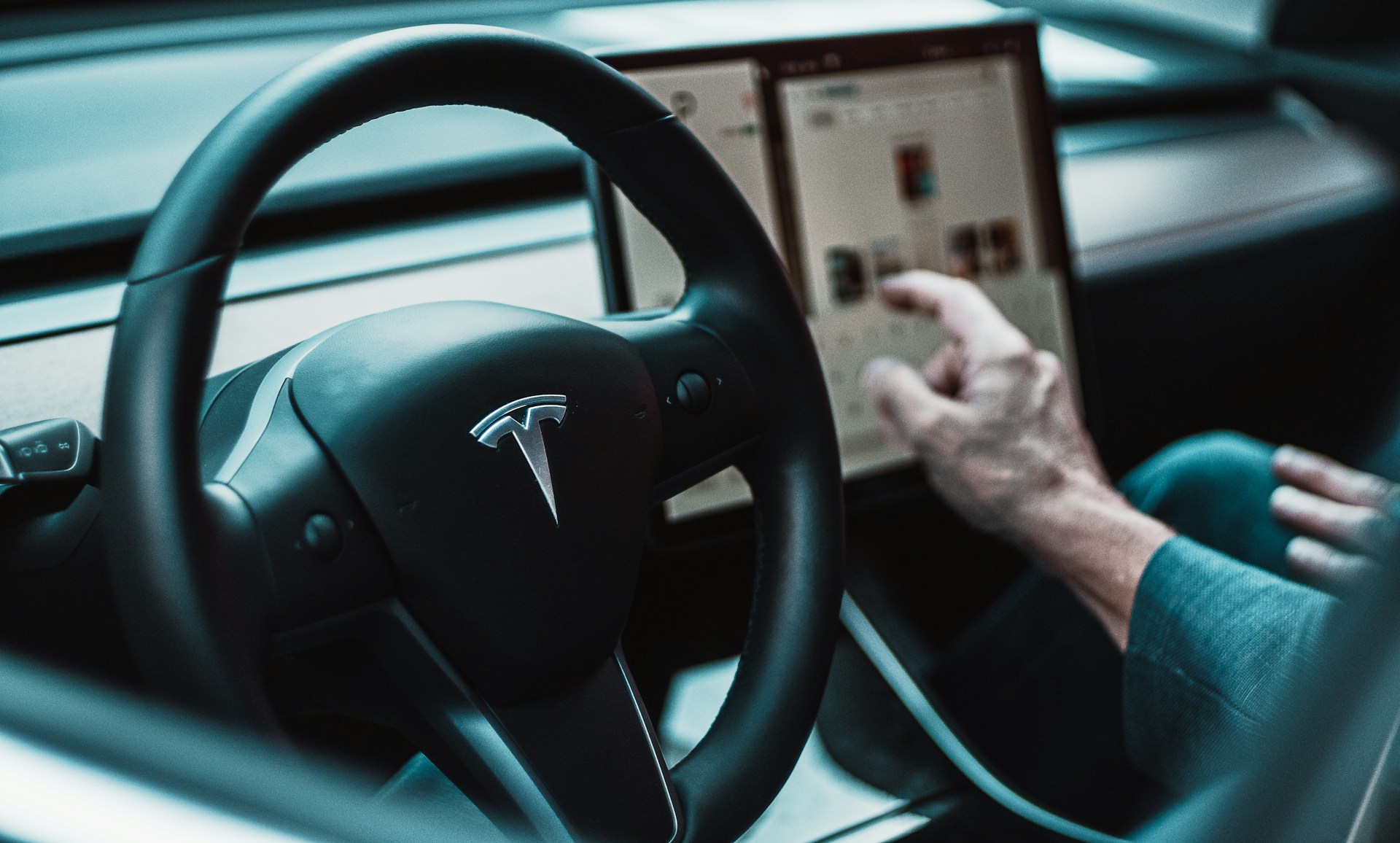Tesla's ambitions for autonomous driving receive a significant boost as reports surface of the Chinese government endorsing the company's robotaxi trials with Full Self-Driving capabilities. Elon Musk's vision of a global fleet of autonomous vehicles gains traction with official support from Chinese officials, marking a pivotal moment in the evolution of self-driving technology.
Government Endorsement Sparks Excitement
Tesla has secured official funding to test its robotaxi concept with Full Self-Driving (FSD) in China.
According to China Daily, Tesla CEO Elon Musk has proposed testing Full Self-Driving functions in automobiles deployed in the Chinese market. Tesla would use its vehicles as taxis in China. Musk also proposed expanding the program to Chinese cab firms.
Musk has compared Tesla's robotaxi service to a hybrid of Airbnb and Uber. Tesla will operate the robotaxi fleet. Some of the vehicles will be owned by Tesla, and others may be owned by end users, who will be able to add or remove their vehicle from the Tesla robotaxi network at any moment.
End users can also limit the number of consumers who utilize their Tesla as a robotaxi. For example, they might only accept rides from five-star clients, as per Teslarati.
Chinese officials allegedly informed Musk that Tesla was welcome to perform robotaxi tests in China and that it should set a positive example. Industry analysts have remarked that China has continued to invite foreign enterprises to test their innovations for mutual benefit.
Market Potential and Regulatory Landscape
Tesla's full self-driving tests in China would back up Musk's claims at the Q1 2024 earnings call. Musk noted at the time that with country-specific training, FSD could be used anyplace in the world.
“So, think about the end-to-end neural net-based autonomy is that just like a human, it actually works pretty well without modification in almost any market. So, we plan on — with the approval of the regulators, releasing it as a supervised autonomy system in any market that — where we can get regulatory approval for that, which we think includes China. So, yes, it’s — just like a human, you can go rent a car in a foreign country and you can drive pretty well,” Musk said.
“Obviously, if you live in that country, you’ll drive better. And so, we’ll make the car drive better in these other countries with country-specific training. But it can drive quite well almost everywhere,” he added.
Photo: David von Diemar/Unsplash



 APEX Tech Acquisition Inc. Raises $111.97 Million in NYSE IPO Under Ticker TRADU
APEX Tech Acquisition Inc. Raises $111.97 Million in NYSE IPO Under Ticker TRADU  Nintendo Share Sale: MUFG and Bank of Kyoto to Sell Stakes in Strategic Unwinding
Nintendo Share Sale: MUFG and Bank of Kyoto to Sell Stakes in Strategic Unwinding  Synopsys Q2 Revenue Forecast Misses Expectations Amid China Export Curbs and AI Shift
Synopsys Q2 Revenue Forecast Misses Expectations Amid China Export Curbs and AI Shift  Greg Abel’s First Berkshire Hathaway Shareholder Letter Signals Continuity, Caution, and Capital Discipline
Greg Abel’s First Berkshire Hathaway Shareholder Letter Signals Continuity, Caution, and Capital Discipline  OpenAI Targets $600B Compute Spend as IPO Valuation Could Reach $1 Trillion
OpenAI Targets $600B Compute Spend as IPO Valuation Could Reach $1 Trillion  Federal Judge Blocks Virginia Social Media Age Verification Law Over First Amendment Concerns
Federal Judge Blocks Virginia Social Media Age Verification Law Over First Amendment Concerns  Toyota Plans $19 Billion Share Sale in Major Corporate Governance Reform Move
Toyota Plans $19 Billion Share Sale in Major Corporate Governance Reform Move  Samsung Stock Hits Record High on Nvidia HBM4 Supply Deal, Boosting AI Chip Rally
Samsung Stock Hits Record High on Nvidia HBM4 Supply Deal, Boosting AI Chip Rally  Hyundai Motor Plans Multibillion-Dollar Investment in Robotics, AI and Hydrogen in South Korea
Hyundai Motor Plans Multibillion-Dollar Investment in Robotics, AI and Hydrogen in South Korea  Trump Orders Federal Agencies to Halt Use of Anthropic AI Technology
Trump Orders Federal Agencies to Halt Use of Anthropic AI Technology  Samsung and SK Hynix Shares Hit Record Highs as Nvidia Earnings Boost AI Chip Demand
Samsung and SK Hynix Shares Hit Record Highs as Nvidia Earnings Boost AI Chip Demand  FAA Plans Flight Reductions at Chicago O’Hare as Airlines Ramp Up Summer Schedules
FAA Plans Flight Reductions at Chicago O’Hare as Airlines Ramp Up Summer Schedules  Netflix Stock Jumps 14% After Exiting Warner Bros Deal as Paramount Seals $110 Billion Acquisition
Netflix Stock Jumps 14% After Exiting Warner Bros Deal as Paramount Seals $110 Billion Acquisition  Boeing Secures $166.8 Million U.S. Navy Contract for P-8A Engineering and Software Support
Boeing Secures $166.8 Million U.S. Navy Contract for P-8A Engineering and Software Support  Anthropic Resists Pentagon Pressure Over Military AI Restrictions
Anthropic Resists Pentagon Pressure Over Military AI Restrictions  FCC Approves Charter Communications’ $34.5 Billion Acquisition of Cox Communications
FCC Approves Charter Communications’ $34.5 Billion Acquisition of Cox Communications 































